• Study in Canada
Admission in Canada: UG & PG Application Requirements for Canadian Universities
5555 Reads
3 min Read
• Benefit from Canada’s high-quality education system that emphasizes research and practical experience through co-op programs.
• Discover factors that lead to an excellent quality of Canada, contributing to a positive student experience.
• Prepare for a successful career while studying and working in a multicultural environment.
• Understand the importance of researching programs, gathering required documents, and applying well in time.
After getting admission to Canadian institutions, International students have immense personal growth and career enhancement opportunities. These opportunities help them broaden their horizons and experience different cultures to acquire a global perspective.
International students can get admission to Canada's highly recognised colleges and Universities for various undergraduate (UG), postgraduate (PG), and professional courses.
Why Apply for Admission to Canadian Universities?
Canada is one of the most sought-after countries where Indian students can pursue higher education. Its high-quality education, internship opportunities, and post-study work opportunities make it the most preferred study-abroad destination for international students.
Depending on an international student’s motivation, there can be numerous reasons to study in Canada. Below are a few of them:
| Affordability | Canadian education is relatively affordable compared to education in other study abroad destinations. When considering the return on investment, Canadian education presents a desirable choice for parents considering their options. The tuition fee to study in Canada depends on the province where a student is enrolled. |
| Academic Excellence | Admission in Canada ensures that international students receive education from premium educational institutions. Pursuing education from a Canadian university is backed by trust and excellence. With institutions such as the University of Waterloo, students can opt for programs in Engineering, IT, Healthcare, Agriculture, Management, Accounting, Economics, and Mining, among others. |
| Skill Development | Co-operative work in Canada allows international students to work in relevant sectors while studying. These opportunities prepare students for the Canadian work environment and instill discipline toward their responsibilities. With a typical co-op running for about 4 months a year, students can gain 16 months of valuable Canadian work experience during their studies. This opportunity gives students an edge over others when looking for permanent jobs after graduation. |
| Quality of life | Canada is one of the safest and most peaceful countries for international students to improve their living standards. They can enjoy quality education, healthcare, basic amenities, clean air and water. Canada’s stable economy makes it the most favourable country for anyone looking to start a professional career. |
| Focus on Research and Development | The Canadian educational system emphasizes research. Therefore, after getting Admission to a Canadian University, International students can participate in academic and scientific research opportunities. They also have the opportunity to engage in activities that offer a comprehensive academic experience. |
Requirements to Get Admission in Canada
International students interested in securing admission in Canada and studying at UG or PG levels must meet several admission requirements. These vary according to the programs and universities in Canada. Before understanding some of the most common admission requirements to apply for universities in Canada, it is important that students know the intakes offered throughout an academic year:
| Intake | Admission Months |
| Fall | Begins in September (most popular intake) |
| Winter | Begins in January |
| Summer | Begins around April/May (offered by a limited number of academic institutes) |
Now that students have a better understanding of intakes in Canada to better plan their education journey in the country, they must read ahead for admission requirements to pursue undergraduate (UG) and postgraduate (PG) courses:
| Admission Requirements | Undergraduate Courses | Postgraduate Courses |
| Academic Records | Students must have a recognised institution's high school diploma or equivalent. Students pursuing competitive programs such as BBA may have to complete specific course requirements or maintain a higher grade point average (GPA). | Those planning to pursue postgraduate (PG) courses in Canada must hold a bachelor's degree or equivalent from a recognized institution. Their previous level of study (preferably an undergraduate degree) must align with their desired postgraduate program. |
| English Language Proficiency | International students must demonstrate their English proficiency through standardised tests such as the TOEFL or the IELTS. | Students must demonstrate their English language skills through IELTS or TOEFL. |
| Standardized Tests | Some universities may require additional standardised test scores, such as SAT or ACT, for certain programs to evaluate students' critical thinking and problem-solving skills. | Students may need to provide GRE or GMAT scores for specific programs, such as the sciences, engineering, or business. |
| Letters of Recommendation | Students typically need one or two letters of recommendation from mentors, teachers or counsellors who can attest to their abilities, character, and potential. | Students need two to three letters of recommendation from professors or professionals familiar with their work who can vouch for their readiness to tackle postgraduate study. |
| Personal Statement | Canadian institutes require a personal statement from students to know about their interests, goals, and reasons behind choosing the program. It allows the admissions committee to understand student’s profiles beyond their grades and scores. | This document outlines student’s research interests, career goals, and reasons for choosing the program. It is a great chance to present passion, dedication, and vision behind the postgraduate journey. |
| Application Fee | Students must pay a non-refundable application fee, covering the cost of processing the application. | To apply for postgraduate (PG) programs, students have to submit a non-refundable fee. |
Popular Universities & Colleges to Study in Canada
International students from non-English speaking countries like India must demonstrate their proficiency in English to secure admission to colleges and universities in Canada. They can do so through competitive scores in language proficiency exams such as IELTS, TOEFL, PTE, and Duolingo. The table below showcases the minimum language proficiency test scores required by some of the premium Canadian colleges and universities for admission in UG and PG courses:
| University | Minimum IELTS Score Requirement for UG Courses | Minimum IELTS Score Requirement for Graduate Courses |
| University of Victoria | 6.5 band score (with no band less than 6) | 6.5 (with no band less than 6) |
| University of Ottawa | 6.5 band score (with no band less than 6.5) | 6.5 band score (with no band less than 6.5) |
| University of Waterloo | Overall Score - 6.5 Writing and speaking: 6.5 Reading and listening: 6.0 | 7.0 band score (with no band less than 6.5 in each section) |
| Nipissing University | 6.5 band score (with no band less than 6) | 6.5 band score (with no band less than 6) |
| Lakehead University | 6.5 band score (with no band less than 6) | 6.5 band score (with no band less than 6) |
| University of Regina | 6.5 band score (with no band less than 6) | 6.5 band score (with no band less than 6) |
| University of Saskatchewan | 6.5 band score (with no band less than 6) | 6.5 band score (with no band less than 6) |
| University of Manitoba | 6.5 band score (with no band less than 6) | 6.5 band score (with no band less than 6) |
| University of the Fraser Valley | 6.5 band score (with no band less than 6) | 6.5 band score (with no band less than 6) |
| University of Northern British Columbia (UNBC) | 6.5 band score (with no band less than 6) | 6.5 band score (with no band less than 6) |
| University Canada West | 6.5 band score (with no band less than 6) | 6.5 band score (with no band less than 6) |
| Trinity Western University | 6.5 band score (with minimum score of 6.0 in Writing/Reading and 5.5 in Speaking/Listening) | 7.0 band score (with Writing/Reading 6.5+, Speaking/Listening: 6.0+). |
| University of Prince Edward Island | 6.5 band score (with no band less than 6) | 6.5 band score (with no band less than 6.5 and 7.0 in Writing) |
| Dalhousie University | 6.5 band score (with no band less than 6) | 7.0 band score (with no band less than 6) |
| Cape Breton University | 6.5 band score (with no band less than 6) | 6.5 band score (with no band less than 6) |
| University of New Brunswick (UNB) | 6.5 band score (with no band less than 6) | 6.5 band score (with no band less than 6) |
| Wilfrid Laurier University | 6.5 band score (with no band less than 6) | 6.5 band score (with no band less than 6) |
How to Get Admission to Canadian Institutes?
Navigating the application process to apply for universities in Canada is a daunting task. Hereunder are some simplified steps to guide Indian students:
• Students must thoroughly research universities and programs in Canada. They can connect with study abroad consultants to find the ones that best match their academic interests and career goals.
• They must collect all the required documents (transcripts, test scores, etc.). It is important to allocate enough time to gather all the required information and prepare for the standardized tests required for admission.
• Students can take the assistance of a study abroad counsellor to complete their online application form, upload necessary documents, and pay the application fee.
• After submitting the application, the student must wait for the university’s reviewing process. They must remember that this process can take several weeks to a few months.
• The student will receive an offer letter if their application is selected to study in the college or university of Canada.
• The student will then be required to apply for a Canadian study permit.
Students must note that each college and university in Canada has their own set of application procedures and requirements. They must get their profile assessed by an expert study abroad consultant to receive accurate guidance throughout the application process.
Conclusion
Studying in Canada is an enriching experience, both academically and personally, for international students. The country has so much to offer, including high-quality education, research opportunities, work experience, and a unique cultural experience. By getting in touch with the experts at Canam, students can fulfil the admission and application requirements to their desired undergraduate and postgraduate degree programs in Canada.
FAQ
Get great articles direct to your inbox
The latest news, articles, and resources, sent straight to your inbox every month.
Popular Universities to Study Abroad
World class education waiting for you.

Shorelight Group - Holy Cross College at Notre Dame
Indiana, USA • 12 Programmes
Tuition Fee : USD 35000-35200 / year
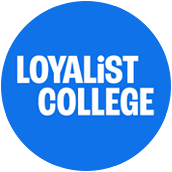
Loyalist College - Belleville Campus
Ontario, Canada • 91 Programmes
Tuition Fee : CAD 15000-15500 / year
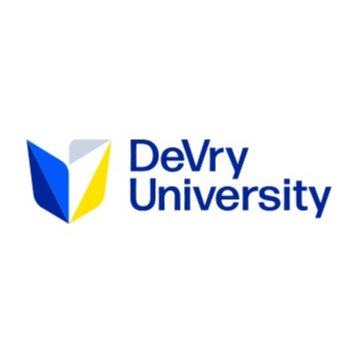
Devry University - Iselin Campus
New Jersey, USA • 30 Programmes
Tuition Fee : USD 15000-16000 / year

Dimensions International College - Orchard Campus
Central Region, Singapore • 35 Programmes
Tuition Fee : SGD 0-0 / year
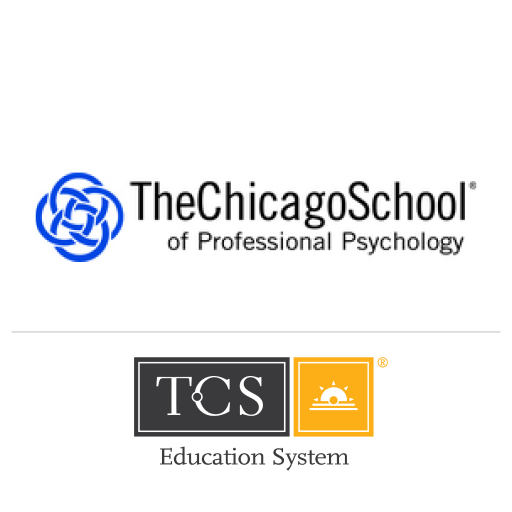
TCS - The Chicago School of Professional Psychology - Washington Campus
District of Columbia, USA • 10 Programmes
Tuition Fee : USD 0-0 / year
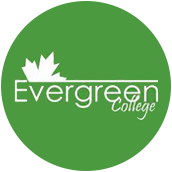
Evergreen College - West Campus
Ontario, Canada • 15 Programmes
Tuition Fee : CAD 10500-21500 / year
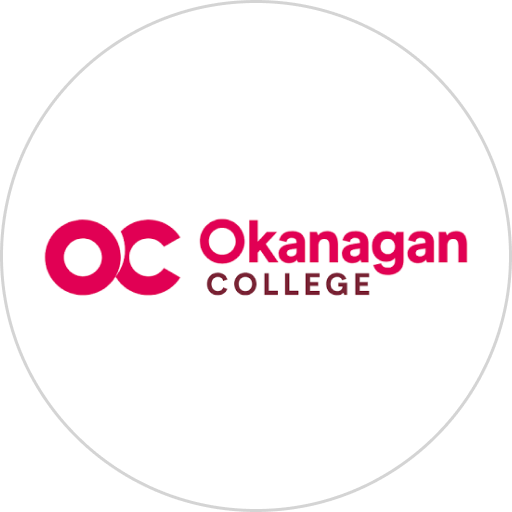
Okanagan College - Vernon Campus
British Columbia, Canada • 13 Programmes
Tuition Fee : CAD 12500-18500 / year
.png)
Coast Mountain College - Terrace Campus
British Columbia, Canada • 30 Programmes
Tuition Fee : CAD 12000-29000 / year
Popular English Language Proficiency Exams
Blogs and Articles
Curated content to keep you updated on the latest education trends, news and more.
Updated on • Jul 17,2025 05:33 PM IST • USA
PTE Accepted Universities in Australia
Updated on • Jul 17,2025 05:09 PM IST • PTE
Part-Time Jobs for International Students in Australia
Updated on • Jul 17,2025 03:44 PM IST • Australia
Updated on • Jul 12,2025 04:02 PM IST • USA
Updated on • Jul 11,2025 11:32 AM IST • Education
CPT vs OPT: Meaning, Difference, and How to Apply
Updated on • Jul 11,2025 10:40 AM IST • USA
Masters in Computer Science in UK: Top Colleges, Eligibility, Scholarships
Updated on • Jul 10,2025 11:29 AM IST • study in the UK
Highest Paying Jobs in the World
Updated on • Jul 08,2025 01:40 PM IST • Study Abroad
MBA in Australia for Indian Students: Best Universities, Requirements, Scholarship, Courses, Jobs
Updated on • Jul 08,2025 01:35 PM IST • Australia
Canada vs Australia: Which Country is Better for Indian Students in 2025?
Updated on • Jul 07,2025 12:46 PM IST • Education
France vs Germany: Which Is Better for International Students?
Updated on • Jun 30,2025 05:15 PM IST • Education
Top 10 Agricultural Universities in USA
Updated on • Jun 27,2025 05:25 PM IST • USA
Most In-Demand Future Careers in 2025
Updated on • Jun 26,2025 04:41 PM IST • Education
How Much Do Nurses Make in the U.S.?
Updated on • Jun 23,2025 03:59 PM IST • USA
Updated on • Jun 21,2025 02:00 PM IST • USA
MBA in UK: Universities, Eligibility, Types, and Career Opportunities
Updated on • Jun 19,2025 04:09 PM IST • UK • study in the UK
Scholarships in France for Indian Students
Updated on • May 29,2025 05:22 PM IST • France
Intakes in Dubai for Indian Students
Updated on • May 27,2025 03:34 PM IST • Study in Dubai
France Student Visa 2025 – Requirements, Fees, Checklist & Application Process
Updated on • May 23,2025 03:36 PM IST • France
MBA in France for Indian Students in 2025
Updated on • May 22,2025 05:35 PM IST • France
Related Blogs and Articles
A little effort to provide an authentic and reliable content for keen readers!!
Updated on • 22-05-2025 • Study in Canada
Job Opportunities in Canada for Indians: Salaries, Best Job Sites & More
Updated on • 20-05-2025 • Study in Canada
Updated on • 24-01-2025 • Study in Canada
Canada Student Visa Interview Questions
Updated on • 23-01-2025 • Study in Canada
Updated on • 15-01-2025 • Study in Canada
September/Fall Intake Canada 2025: Timeline, Universities & Admission Requirements
Updated on • 03-01-2025 • Study in Canada
Updated on • 02-01-2025 • Study in Canada
Life in Canada as an Indian Student
Updated on • 26-12-2024 • Study in Canada
Timeline for Winter (January) Intake in Canada 2025
Updated on • 21-12-2024 • Study in Canada
Updated on • 05-12-2024 • Study in Canada
Best Cities to Study in Canada
Updated on • 21-11-2024 • Study in Canada
Bachelor of Architecture in Canada
Updated on • 13-11-2024 • Study in Canada
Canada Study Visa - Fee, Requirements, How to Apply & More
Updated on • 05-10-2024 • Study in Canada
Study intakes in Canada - Fall, Winter & Summer
Updated on • 03-10-2024 • Study in Canada
Letter of Recommendation (LOR) for Canada: University Requirements, Sample and Writing Tips
Updated on • 26-09-2024 • Study in Canada
New Rules & Regulations in Canada for International Students
Updated on • 31-08-2024 • Study in Canada
Public Transportation in Canada for International students
Updated on • 29-08-2024 • Study in Canada
Healthcare in Canada for international students
Updated on • 27-08-2024 • Study in Canada
Courses in Canada for International Students
Updated on • 10-08-2024 • Study in Canada
Top PG diploma Colleges in Canada - Courses, Eligibility & More
Updated on • 06-08-2024 • Study in Canada












